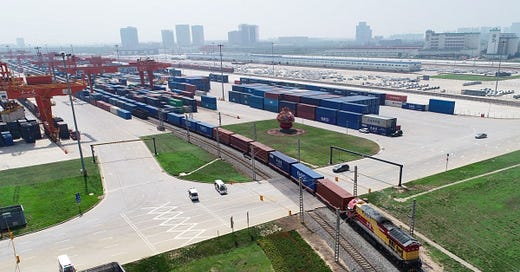The China-Kyrgyzstan-Uzbekistan Express: China’s Interest
Beijing seeks a foothold in the ‘stans
By: Genevieve Donnellon-May
Construction is expected to commence in October on the long-planned China-Kyrgyzstan-Uzbekistan (CKU) railway, with the governments of China, Kyrgyzstan, and Uzbekistan on June 6 signing an intergovernmental agreement to build a new line connecting the three countries at an estimated cost of US$8 billion and forming part of China’s Belt and Road Initiative (BRI). Originally proposed in the 1990s, the railway, estimated to cost US$4.5 billion, aims to become part of the southern route for the China-Europe freight rail, which would see trains running from China to Europe via Kyrgyzstan, Turkmenistan, Iran, and Turkey. Doing so would reduce travel time by an estimated 900 km and eight days, providing an alternative route to the current Kazakhstan-Russia transit route.
The 523-km railway, with 213 km in China, 260 km in Kyrgyzstan, and 50 km in Uzbekistan, holds significant potential for both landlocked Uzbekistan and Kyrgyzstan, providing access to Southeast and Western Asia as well as to Turkish and Middle Eastern markets, creating a new strategic Eurasia logistic network along the BRI route, as well as contributing to the trade with other Central Asian countries. It offers Beijing multiple advantages, allowing China to diversify routes through Central Asia and reduce its dependence on transiting Russia while maintaining rail trade with Europe. As Asia Sentinel reported on August 26, since Russia began its invasion of Ukraine in February 2022, its traditional underbelly, Central Asia, has been increasingly exposed to new players including the European Union, the United States, China, Iran, and Turkey, none of which necessarily aligns with Russian interests…




